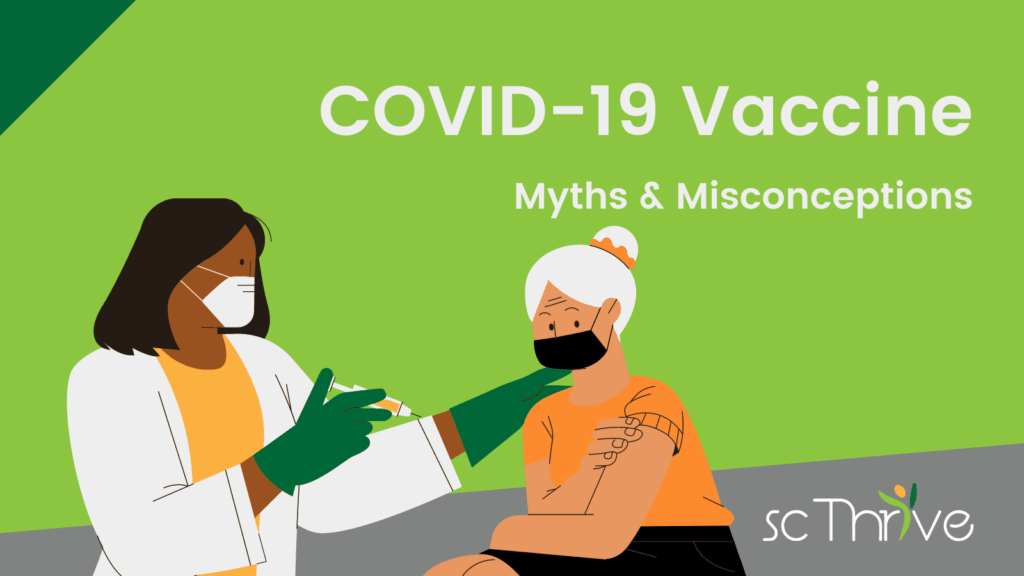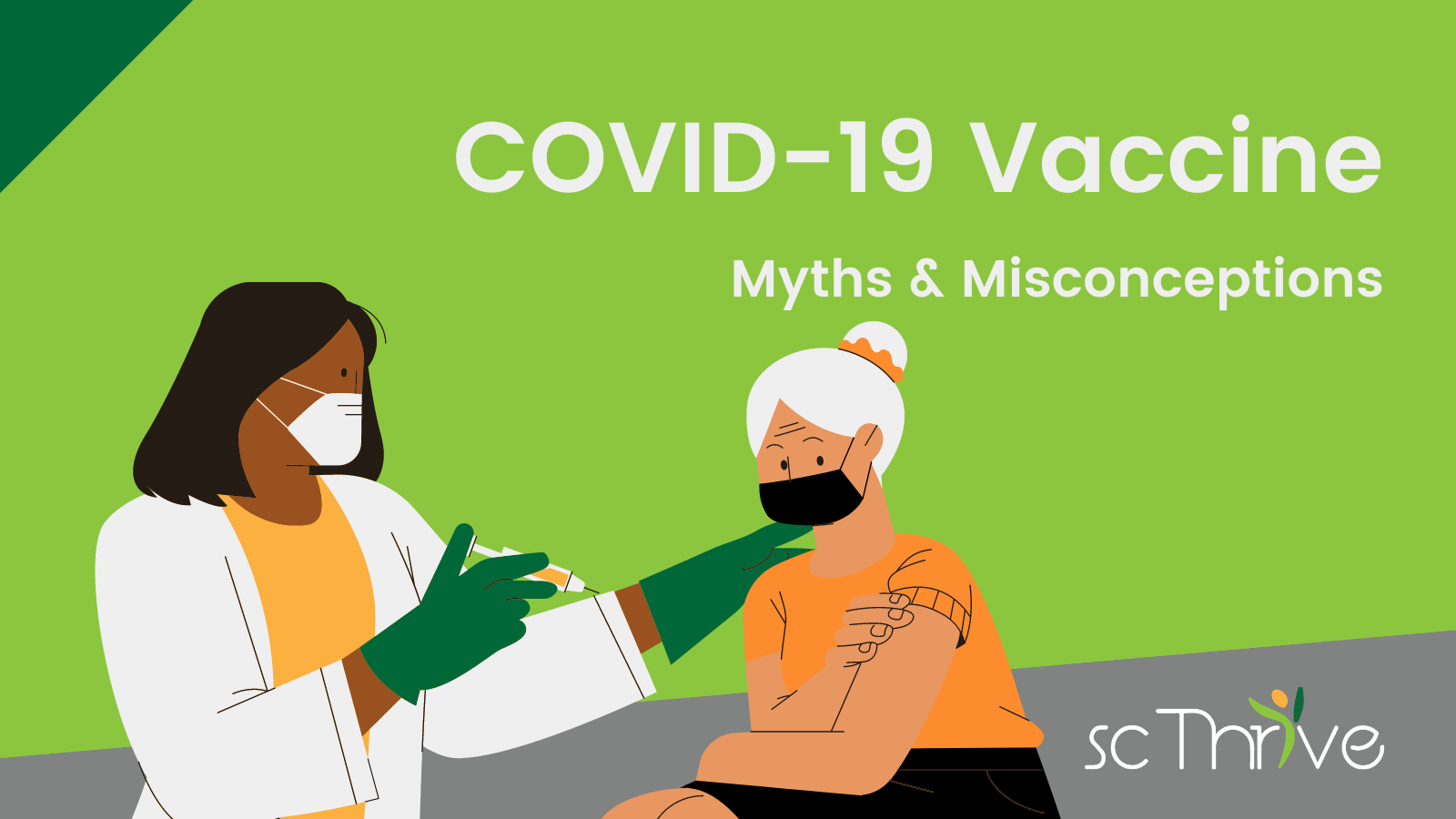
It’s okay to have questions. Everyone deserves answers. Do you know your options for the COVID-19 vaccine? How do you know which sources and information about COVID-19 are accurate?
It’s no surprise you’ve heard rumors about the COVID-19 vaccines on social media or from people in your life. The different types of vaccine information conveyed via media have a huge impression on vaccine hesitancy. Controversies on vaccine safety, which circulate vigorously in news headlines, talk shows, and popular articles, contribute to the community’s hesitancy. Let’s set the record straight on some of the misinformation going around about the COVID-19 vaccines.
Common Myth: The vaccines were rushed and are a safety concern.
Fact:
- In the US, vaccines are tightly regulated. They go through rigorous evaluation processes to ensure safety and effectiveness. Most people don’t know that scientists had already begun research for coronavirus vaccines during previous outbreaks caused by related coronaviruses, such as SARS and MERS. This early research has helped determine the safety and effectiveness of the three available COVID-19 vaccines.
Common Myth: Getting the COVID-19 vaccine will give me COVID-19.
Fact:
- The COVID-19 vaccine does not contain a live virus; therefore, it cannot give you COVID-19. The protein your body produces from the vaccine helps your immune system recognize and fight the virus. Sometimes this process can cause symptoms; this is normal and a sign that your body is building protection against the virus.
Common Myth: I have been vaccinated, so I no longer need to wear a mask.
Fact:
- You are considered fully vaccinated two weeks after you get the second dose of either the Pfizer or Modern and two weeks after the single dose of the Johnson & Johnson vaccine. Masks are still a good choice for preventing the spread of COVID-19. Currently, the CDC and DHEC recommend that everyone wear their mask, even those who are fully vaccinated. Wearing a mask indoors in public and outdoors in crowded areas when you are in close contact with unvaccinated people is beneficial. Many people may not realize that they are carrying the virus. Wearing a face covering can protect you as well as others.
Common Myth: The vaccine doesn’t work; you can still get COVID-19 after vaccination.
Fact:
- COVID-19 vaccines will protect most people from getting severely ill with COVID-19. However, some fully vaccinated individuals will still have symptoms when they have COVID-19. If you are fully vaccinated, the overall risk of hospitalization and death due to COVID-19 is much lower.
Common Myth: The current COVID-19 vaccines don’t protect against the COVID-19 variants.
Fact:
- Viruses constantly change through mutation, which sometimes results in new virus variants. Some variants emerge and disappear while others persist. New variants of the virus are expected to occur. While vaccines remain the best way to reduce the risk of serve illness, hospitalization, and death. We don’t yet know how effective they will be against new variants that may arise. COVID-19 booster doses are recommended for adults and teens who have completed the required doses for that specific vaccine.
Receiving information from several different sources can get confusing. Knowing the facts about the vaccine is vital to stopping the spread of COVID-19. We can all do our parts by frequently washing our hands, social distancing, wearing face coverings, and getting vaccinated! Remember, COVID-19 vaccines are an essential line of defense against this highly contagious virus. COVID-19 vaccines are safe and effective and can reduce the risk of getting and spreading the virus that causes COVID-19.
For more information about how to make an appointment to receive your vaccine, transportation options and other COVID-19 resources, visit our vaccine resource page HERE.
